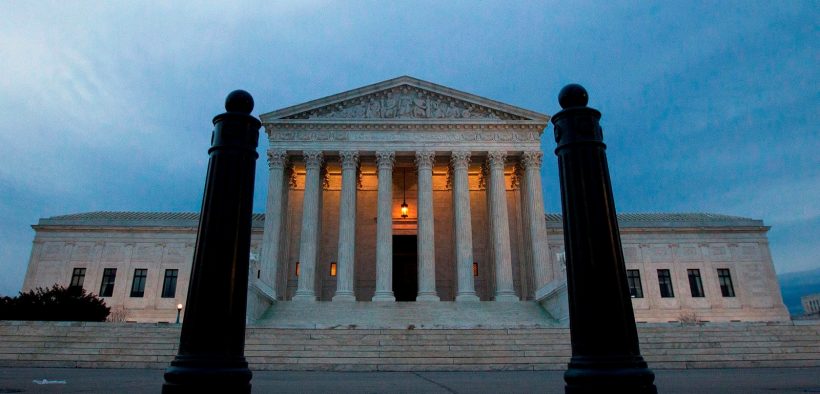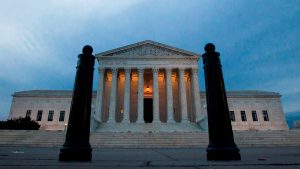Don’t Be Afraid of the Equality Act
Take action because of what the Equality Act represents

President Biden marked his 100th day in office with a joint speech before Congress where he again called on Congress to pass the Equality Act, an important campaign promise and a top legislative priority. The House passed the bill in only one week and it is now before the Senate.

Within the Christian world, countless articles, webinars, and podcasts are focused on the Equality Act’s chances of passing and how it would wreak havoc on religious liberty. But religious organizations watching the Senate vote count are focusing in the wrong place.
What those focused on the Equality Act miss is that this proposed law is but one manifestation of larger trends that are already transforming our world. Even if the Equality Act stalls out in the Senate, we are still facing the following:
- Last summer the Supreme Court, in the Bostock decision, declared that the Civil Rights Act of 1964 prohibits employment discrimination on the basis of sexual orientation and gender identity;
- According to the Human Rights Campaign, President Biden’s day-one executive order has already effectively amended all but two of the laws identified in the Equality Act (listing public accommodations and federal financial assistance as the areas lacking LGBT protections);
- Religious liberty is increasingly attacked as an excuse for bigotry, and Christians who believe in biblical marriage are compared to racists.
The bottom line is this: the cultural and legal changes the Equality Act represents are already underway. Like a tsunami, they are rolling our way and nothing short of a miracle will stop their momentum. What does this mean for Christian schools, churches, and other ministries?
Access to MinistryWatch content is free. However, we hope you will support our work with your prayers and financial gifts. To make a donation, click here.
Coastal villages that hear the tsunami warning have three choices. To avoid disaster, they can either ride out into deep water, where the tidal wave will only be a large swell, or they can move into the hills, where they will be protected from the surge. It’s the third choice—staying where they are—that leads to disaster.
Christian ministries are now facing the same choices. Some, like Bethany Christian Services, are assimilating with the coming waves by surrendering traditional convictions on matters of human sexuality. But for those who remain true to biblical principles and want to survive, there is only one option: they must make changes in order to ground their ministries on the strongest foundation possible. Staying where they are and failing to take action is courting disaster.
Luke Goodrich, vice president at Becket, warns in his recent book, Free to Believe: The Battle over Religious Liberty in America, that most religious organizations are unprepared to defend their convictions when challenged. “Far too often, religious organizations wait until a conflict is already upon them before seeking legal advice. By then, it’s often too late.” Goodrich urges religious leaders instead to work with a take practical steps to “strengthen their witness and reduce their likelihood of conflict and loss.”
Goodrich’s advice echoes many of the strategies I outlined in a special report for the Heritage Foundation, Protecting Your Right to Serve: How Religious Ministries Can Meet New Challenges without Changing Their Witness. Taking these practical steps is a time-intensive and resource-intensive process, but such planning is an important part of stewardship and prudent leadership in our cultural and legal contexts.
For the past seven years, I have helped religious organizations do just that. The Religious Institutions Group at my firm has guided dozens of Catholic and Evangelical schools, colleges, churches, and ministries big and small through a process we call a Mission Audit, designed to strengthen their ability to withstand present and emerging legal and cultural pressures. One head of school in California described the audit as “a terrific way to set our schools’ future for sustainability through focusing and articulating who we are and what we stand for at the deepest levels.”
Though the pressures on religious liberty have increased, one approach remains sound: religious organizations can best avoid disputes and win legal challenges by focusing on their core First Amendment rights to free exercise and freedom of association.
In the present context, that involves the following:
- Clarify your organization’s religious mission;
- Determine what you need (personnel and otherwise) to carry out that mission;
- The answers can and likely should be different for various positions.
- Develop job descriptions and related materials that communicate each position’s relationship with your mission and, with that, necessary faith and conduct requirements;
- Ensure that faith and conduct requirements are clearly connected to your religious identity;
- Implement policies and practices ensuring that employees and other community members. . .
- understand and assent to being a part of your organization’s religious mission,
- are trained for and held accountable for their role in carrying out your mission, and
- are treated consistently when difficulties arise.
An audit is an involved process. And it is always hard for ministries to devote attention and resources to problems that are not yet on their doorstep. But in today’s political and cultural climate, such planning is necessary as a matter of stewardship and prudent leadership. Though the challenges facing ministries today are grave, thoughtful preparation will go a long way in helping religious organizations strengthen and protect their mission.



